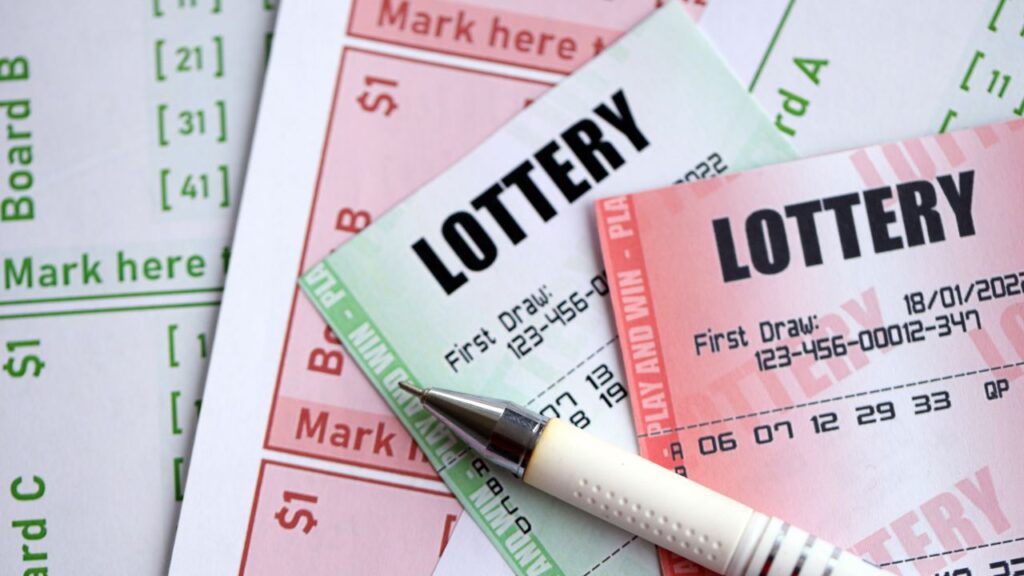“Congrats—you’ve hit the jackpot!” Those five words can launch you into a whole new tax bracket overnight. 🎉 But before you picture an endless stream of luxury cars, remember that lottery taxes can swallow 40 percent—or more—of mega-prizes. In fact, the IRS automatically withholds 24 percent on wins above $5,000, and many states pile on extra percentages. I’m here to demystify the fine print, compare lump-sum vs annuity payouts, and share savvy strategies from CPAs who help real winners protect their windfalls. Ready to discover exactly how much you’ll owe—and how to plan ahead? Let’s break down every tax twist so you can celebrate with confidence!
🎯 Explore the best lottery prediction software to boost your chances with smart number strategies.
Federal vs State Lottery Taxes: The Basics
Define Taxable Income: Why Prizes Are Treated Like Wages
When you win the lottery, the IRS doesn’t see it as “found money.” Instead, it’s considered ordinary taxable income, similar to your salary or bonuses. That means it gets added to your other earnings for the year and taxed accordingly. Whether it’s $600 or $600 million, you’re responsible for reporting every dollar on your federal return.
Overview of Federal Brackets (Top Rate ≈ 37%)
Lottery winnings are subject to the same progressive tax brackets as wages. For 2025, the highest marginal federal tax rate is 37%, which kicks in once your total income crosses about $626,350 if you’re single (or $751,600 if you’re married filing jointly). A large jackpot quickly pushes most of your prize into that top bracket.
Mandatory 24% Federal Withholding on Prizes > $5,000
When you claim a prize over $5,000, the lottery automatically withholds 24% for federal tax before you ever see the money. But beware—if your total tax rate ends up higher (as it usually does for big wins), you’ll still owe the difference when you file your return.
How States Differ: Tax-Free vs High-Tax States
State taxes can vary wildly. Some states—like Florida, Texas, and California (for in-state lottery games)—don’t tax lottery winnings at all. Others, like New York and New Jersey, can charge upwards of 8–10%. This means where you live can easily cost you millions on a jackpot.
Local Add-ons (NYC, Yonkers, etc.)
In certain locations, city and local income taxes pile on top of state and federal obligations. For example, New York City residents pay an additional ~3.9%, and Yonkers residents pay an extra tax too. Always check your local tax rules to avoid surprises when the final bill comes due.
🚀 Find your ideal lottery prediction software and play with more confidence today.
Federal Tax Rates and Withholding Rules

2025 Bracket Thresholds for Singles & Joint Filers
Lottery winnings get lumped into your total income for the year and are taxed at the same graduated federal rates as other income. For 2025, the tax brackets look roughly like this:
- 10% on the first ~$11,900 (single) or ~$23,850 (married filing jointly)
- 12–35% on the middle tiers
- 37% on amounts over ~$626,350 (single) or ~$751,600 (joint)
If you win a major prize, most of it will fall into that top 37% bracket, regardless of your previous income.
Calculating True Liability Beyond 24% Withholding
Although the lottery automatically withholds 24% on prizes over $5,000, this is only a down payment on your final tax bill. When you file your return, your total tax owed is recalculated based on the actual brackets. For big wins, you’ll almost always owe an extra 13% or so to cover the difference between the 24% withheld and the 37% top rate.
Special Rules for Non-U.S. Residents (30% Flat)
If you’re not a U.S. citizen or resident, the tax rules are even stricter. The IRS generally requires a flat 30% federal withholding on lottery prizes. Unlike residents, non-residents don’t benefit from graduated brackets. Plus, depending on tax treaties, you might or might not get any of that tax refunded later.
Form W-2G Reporting Requirements
Any lottery win over $600 will trigger a Form W-2G, which reports your prize and the amount withheld. You’ll receive this form from the lottery commission or payer, and the IRS will get a copy too. Even if you don’t get a W-2G (for example, for smaller wins under $600), you’re still legally required to report every dollar you win as taxable income on your return.
🎯 Discover the best lottery prediction software and take the guesswork out of picking your numbers.
State-by-State Lottery Tax Landscape
Table/Graphic of Resident Tax Rates (0% – 10.9%)
Every state has its own approach to taxing lottery prizes, and the differences can be dramatic. Some have no tax at all, while others charge nearly 11%. Here’s a snapshot of top state tax rates on lottery winnings for residents:
- 0% – Florida, Texas, Washington, South Dakota, Wyoming, Tennessee, New Hampshire
- 0% – California (exempts in-state lottery wins)
- 3–5% – Pennsylvania (3.07%), North Dakota (2.9%), Illinois (4.95%)
- 6–8% – Georgia (~5.75%), Massachusetts (5%), New Jersey (8%)
- 8–10.9% – Oregon (~8%), New York (10.9%), Maryland (up to 8.75% with local taxes)
Your tax bill can vary by tens of thousands—or millions—depending on where you live.
States with No Income Tax or Lottery-Specific Exemption
Seven states don’t have personal income tax at all, and California uniquely exempts state lottery winnings. So, if you’re in one of these locations, you’ll only owe federal tax. This advantage is why some winners consider moving before claiming an annuity.
Cross-Border Play: Where You Buy vs Where You Live
If you buy a ticket while traveling, you usually pay taxes in your state of residence, not where you purchased the ticket. For example, a Florida resident who wins in Georgia pays no state tax, while a New York resident who wins in Florida still pays New York’s full tax rate. Always check whether your home state taxes all income or only in-state wins.
Local Withholding Quirks (AZ, MD Dual Rates)
A few states have special withholding rules:
- Arizona withholds 5% for residents and 6% for non-residents on lottery prizes.
- Maryland withholds 8.75% for residents and 7.5% for non-residents.
These dual rates can catch people by surprise if they cross state lines to play, so review withholding tables carefully before you claim your prize.
💡 Browse the top lottery prediction tools to see which one suits your playing style.
Lump Sum vs Annuity: Tax Impact

Cash Option vs 30-Year Payout Explained
When you hit a jackpot, you typically choose between a lump sum (cash option) and an annuity. The lump sum pays out the present cash value of the jackpot in one payment—often about 50–60% of the advertised amount. The annuity spreads payments over 30 annual installments, with each payment growing over time (usually about 5% per year).
One-Year Spike vs Multi-Year Bracket Smoothing
Choosing the lump sum means your entire winnings are taxed in the same year, pushing almost all of it into the top 37% federal bracket and triggering immediate state taxes. An annuity, however, distributes income over decades, potentially letting you stay in lower brackets each year. While each installment is still taxable income, this can smooth your tax liability.
Net-Present-Value Trade-Off and Inflation Factor
The total of all annuity payments typically exceeds the lump sum, but you don’t control how the money is invested. Inflation can erode the value of future payments, though many lotteries build in annual increases. Conversely, taking the cash option gives you the chance to invest yourself—but also carries the risk of mismanagement.
Moving to a No-Tax State for Future Annuity Checks
One strategic benefit of annuities is the ability to relocate before future payments arrive. For example, if you live in New York when you win but move to Florida before the second payment, your remaining checks may be free of state income tax (depending on your new state’s laws). This flexibility can save millions over time if you plan carefully and establish clear residency.
🚀 Ready to level up your strategy? Find the perfect lottery prediction software here.
Group Wins, Pools & Gift-Tax Traps
Claiming Tickets Jointly vs One Person Cashing In
When you’re part of an office pool or informal group, it’s essential to claim the prize jointly whenever possible. If just one person claims the ticket and then distributes everyone’s share, the IRS may see those payouts as taxable gifts, which can trigger gift-tax filing requirements or even gift-tax liability.
Written Agreements to Avoid IRS “Gift” Classification
Before claiming, create a signed written agreement documenting who contributed money, how much each person paid, and their agreed share of the winnings. This shows the prize truly belonged to multiple people from the start. Present this documentation when you claim so the lottery can issue separate checks and W-2G forms to each winner, avoiding confusion and potential tax headaches.
Gift-Tax Exclusions and Lifetime Exemption Basics
If you do end up in a situation where one person must claim and share the prize, remember the IRS allows you to give $17,000 per person per year (2024 figure) without any tax reporting. Amounts above that count against your lifetime exemption, which is over $13 million per person but requires filing a gift tax return. To avoid complications, it’s always better to claim the prize collectively.
Trusts/LLCs for Privacy and Member Distributions
Many groups form a trust or LLC before claiming. This setup allows the entity to collect the winnings, distribute shares to members, and potentially keep everyone’s names out of public record (in states that permit anonymity). A trust or LLC also streamlines recordkeeping and can help shield individual members’ identities while proving each person’s legal right to their share. Always consult an attorney to set this up properly before you claim.
✅ Explore expert-recommended lottery prediction solutions and play smarter today.
Hands-On Tax Planning for New Millionaires

Form a CPA-Lawyer-Advisor Team Before Claiming
Before you cash in your winning ticket, assemble a professional team you trust:
- A CPA to model your tax liability and help with estimated payments.
- An attorney to advise on trusts, anonymity options, and state laws.
- A financial planner to create a long-term strategy.
Having this support early helps you avoid costly mistakes and make decisions with clarity.
Setting Aside Estimated Taxes & Avoiding Penalties
Even though the lottery withholds 24% for federal taxes, it’s often not enough to cover the full bill—especially if your winnings push you into the 37% top bracket. Set aside the extra 13% (or more) for federal, plus any applicable state taxes. You may need to make quarterly estimated tax payments to avoid underpayment penalties. A CPA can help you calculate exactly how much to reserve.
Charitable Giving via Donor-Advised Funds for Deductions
If you plan to be philanthropic, consider contributing part of your winnings to a donor-advised fund in the same tax year. This allows you to:
- Receive a large charitable deduction immediately, reducing taxable income.
- Decide later which charities receive grants.
- Potentially offset part of your tax liability while supporting causes you care about.
Estate-Planning Moves: Irrevocable Trusts, Beneficiaries
Large windfalls can push your estate above the federal exemption threshold, creating future estate tax exposure. Smart winners often:
- Set up irrevocable trusts to shield assets from estate taxes and creditors.
- Update beneficiaries on all accounts.
- Plan for succession to protect wealth for heirs.
Meeting with an estate attorney right after your win helps ensure you don’t leave this crucial planning to chance.
✨ See the best lottery prediction software in one place to boost your confidence before your next ticket.
Real-World Scenarios: $1M vs $100M
Side-by-Side Net-After-Tax Calculations (No-Tax vs High-Tax State)
Let’s compare how location dramatically impacts your final payout:
- $1 Million Win (Lump Sum):
- No-Tax State (e.g., Florida): About $370,000 owed to federal taxes (~37%), leaving $630,000 net.
- High-Tax State (e.g., New York): Add
10.9% state tax ($109,000). Net after all taxes: $521,000 (or less if you live in NYC).
- $100 Million Win (Lump Sum):
- No-Tax State: Approx $37 million federal tax, leaving $63 million net.
- High-Tax State: Another ~$10.9 million state tax, bringing net to $52 million, and even less if subject to city tax.
Withholding vs Final Liability Timeline
- At payout, the lottery withholds 24% federal tax upfront.
- State withholding varies (some states withhold 0%, others 5–10%).
- You settle the rest—usually the additional 13% or more federal tax plus any state taxes—when you file your return the following April.
- Large winners often need to make estimated payments during the year to avoid penalties.
Visual Chart of Take-Home Percentages
Example take-home percentages:
| Prize | Federal Tax | State Tax | Approx Net (No-Tax State) | Approx Net (High-Tax State) |
|---|---|---|---|---|
| $1 Million | ~37% | 0–10% | ~63% | ~52% |
| $100 Million | ~37% | 0–10% | ~63% | ~52% or less |
This side-by-side comparison shows why tax planning—and state residency—can make a multimillion-dollar difference.
Expert Tips to Keep More of Your Prize
Increase Withholding or Pay Quarterly Estimates
Most big winners don’t realize the initial 24% federal withholding often falls short. Consider asking the lottery to withhold extra upfront or be ready to make quarterly estimated tax payments. This prevents penalties and a nasty surprise when you file your return.
Stay Anonymous Where Allowed to Reduce Solicitors
If your state permits, claim the prize through a trust or LLC to shield your identity. Public winners often get bombarded with requests, scams, and media attention. A lawyer can help you set up structures to keep your name out of the headlines.
Avoid Common Spending Pitfalls That Drain Funds
New millionaires frequently overspend in the first year—buying multiple homes, luxury cars, or funding countless “can’t miss” investments. Financial advisors recommend putting winnings in a secure account while you plan. Take your time before making major purchases or commitments.
Leverage Low-Risk Investments and Interest Income Planning
Once your taxes are covered, consider placing a significant portion of your after-tax winnings in low-risk, diversified investments. Even conservative bonds and index funds can generate steady income. A qualified financial planner can help you design a portfolio that balances growth, safety, and liquidity so you never run out of money.
Conclusion
Winning big is thrilling, but knowing the lottery taxes game plan is what keeps joy from turning into sticker shock. By grasping federal brackets, weighing lump sum against annuity, and using smart tax strategies—like trusts, charitable gifts, and professional guidance—you’ll keep more of every hard-won dollar. Ready to dive deeper? Bookmark this guide and share it with anyone dreaming of life-changing numbers!
💡 Curious about smarter picks? Check out top-rated lottery prediction tools here.

